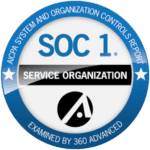Introduction: The Evolving Imperative of Quality and Compliance in Freight Management
In an era defined by global supply chain volatility and heightened customer expectations, freight management has evolved far beyond the simple logistics of moving goods from point A to point B. The modern logistics landscape, a market valued at $11.23 trillion in 2025, demands a new level of precision, accountability, and excellence. Today, success is measured not just by speed and cost, but by the unwavering quality of service and strict adherence to a complex web of regulatory requirements. This paradigm shift is exposing the limitations of traditional methods and even standard Transportation Management Systems (TMS), creating an urgent need for a more intelligent, integrated solution.
Beyond Basic Logistics: The New Demands on Freight Management
Logistics operations are no longer a background function; they are a critical driver of competitive advantage. Customers demand real-time tracking, verifiable proof of handling standards, and absolute reliability. Simultaneously, regulatory bodies worldwide are imposing stricter rules on everything from customs documentation to driver hours and environmental impact. This pressure cooker environment means that a single compliance failure or quality issue can trigger cascading effects, leading to costly penalties, damaged brand reputation, and lost customer trust. Managing this complexity with spreadsheets and fragmented systems is no longer viable.
The Promise of Transformation: What TMS Quality Compliance Software Offers
The shift from a reactive, fragmented approach to a proactive, integrated system powered by TMS Quality Compliance Software.
Entering this high-stakes arena is a new category of technology: TMS Quality Compliance Software. This advanced platform integrates deep quality assurance and proactive compliance protocols directly into the core of a Transportation Management System. It represents a fundamental shift from reactive problem-solving to proactive, data-driven operational excellence. By embedding quality and compliance into every decision—from route planning to carrier selection—this software promises not just to improve freight management, but to completely revolutionize it.
The Foundation: Understanding Transportation Management Systems (TMS)
At its core, a Transportation Management System (TMS) is a logistics platform that centralizes and automates the management of transportation operations. It serves as the command center for the entire supply chain management lifecycle, enabling businesses to plan, execute, and optimize the physical movement of goods. As the TMS market is projected to reach USD 34.8 Billion by 2031, its role as a foundational technology is undisputed.
Core Functions of a Modern TMS Solution
A modern TMS software suite typically handles a range of critical tasks. This includes freight procurement and carrier rate management, enabling users to select the most cost-effective carrier for any given shipment. It excels at route planning and route optimization, using algorithms to determine the most efficient paths. Furthermore, a TMS solution provides load consolidation, shipment tracking, performance analytics, and freight audit and payment—a market segment expected to reach $1.89 billion by 2030. These functions work in concert to streamline logistics operations and provide a degree of transparency.
The Gap: Where Traditional TMS Falls Short on Deep Quality and Proactive Compliance
Despite these capabilities, traditional TMS platforms were primarily designed for efficiency and cost savings. Quality and compliance were often treated as secondary considerations or managed through separate, disconnected processes. This creates a significant operational gap. A standard TMS might optimize a route for speed but fail to account for road conditions that could damage sensitive cargo. It might track a shipment’s location but offer no insight into its condition or whether handling protocols are being followed. This reactive approach leaves businesses vulnerable to preventable errors, compliance breaches, and quality failures that a basic system cannot foresee or prevent.
Introducing TMS Quality Compliance Software: The New Paradigm for Freight Excellence
TMS Quality Compliance Software is not merely an add-on; it is an evolution of the traditional Transportation Management Software. It fundamentally redefines freight management by embedding quality and compliance DNA into every facet of the logistics process, creating a system that is inherently resilient, transparent, and accountable.
Defining TMS Quality Compliance Software: Beyond Basic Adherence
This specialized software expands the scope of a conventional TMS by integrating modules specifically designed to monitor, manage, and document quality standards and regulatory requirements. It moves beyond simple checklists to create a dynamic, auditable record of compliance throughout a shipment’s journey. This includes managing carrier certifications, tracking product handling requirements (e.g., temperature control), automating the generation of complex customs paperwork, and ensuring adherence to industry-specific mandates.
From Reactive to Proactive: A Shift in Operational Philosophy with AI-Assisted Decision-Making
The most profound change offered by TMS Quality Compliance Software is the shift from a reactive to a proactive operational philosophy. By leveraging real-time data, predictive analytics, and artificial intelligence, the system anticipates potential issues before they occur. It can flag a carrier whose insurance is nearing expiry, predict delays that might compromise perishable goods, or identify a route with a high incidence of cargo theft. Companies leveraging AI this way report significant gains, including a 20% drop in logistics expenses and lower operational costs, transforming compliance from a defensive necessity into a strategic advantage.
Pillar 1: Unwavering Regulatory Adherence and Robust Risk Mitigation
Navigating the intricate maze of local, national, and international regulations is one of the greatest challenges in freight management. A specialized TMS makes this complex task manageable and automated, turning a major risk factor into a source of operational strength.
Navigating the Complex Regulatory Landscape with Ease
This software acts as a centralized, constantly updated repository of regulatory requirements. Whether dealing with hazardous materials transport, cross-border customs declarations, or food safety protocols, the system ensures that every shipment is planned and executed in full compliance. It automates the selection of compliant carriers and routes, preventing human error and ensuring that all necessary documentation is correctly prepared and assigned.
Proactive Compliance Monitoring and Exception Management through Real-Time Data and IoT Devices
By integrating with IoT sensors on trucks and cargo, the software provides real-time data on critical compliance parameters like temperature, humidity, and shock events. If a refrigerated container’s temperature deviates from its set range, the system immediately triggers an alert for exception management. This allows logistics managers to intervene proactively, potentially saving the entire shipment and averting a costly compliance failure.
Mitigating Risks and Avoiding Costly Penalties Across the Transportation Lifecycle
Every compliance breach carries the risk of significant financial penalties, shipment seizures, and long-term damage to a company’s reputation. TMS Quality Compliance Software acts as a powerful risk mitigation tool. It creates an immutable audit trail for every shipment, providing verifiable proof of adherence. This automated oversight drastically reduces the likelihood of violations, protecting the business from fines and ensuring smooth passage through checkpoints and borders.
Pillar 2: Elevating Operational Standards and Efficiency
True operational transformation occurs when quality and efficiency are pursued simultaneously. TMS Quality Compliance Software achieves this by integrating quality parameters directly into the optimization engine, ensuring that every decision enhances both performance and standards.
Intelligent Route and Load Optimization for Quality, Safety, and Sustainability
While a standard TMS optimizes for cost or speed, a quality-focused system adds new layers to its route optimization algorithms. It considers factors like road quality, weather forecasts, security levels, and driver rest requirements to generate routes that are not only efficient but also safe and reliable for the specific cargo being transported. This intelligent route planning helps businesses cut transportation costs by up to 15% through smart automation.
Strategic Carrier Selection and Performance Management for a Compliant Logistics Network
A company’s logistics network is only as strong as its weakest carrier. This software enables data-driven carrier management by maintaining detailed performance scorecards. It tracks metrics like on-time delivery, damage rates, and compliance history, allowing shippers to select the best carrier for each job based on verifiable quality data. This fosters a high-performing, compliant carrier base and holds all partners accountable to consistent standards.
Streamlined Documentation and Automated Processes for Flawless Operations
Manual documentation is a primary source of errors and delays in logistics. The system automates the creation and distribution of essential documents like bills of lading, customs forms, and proofs of delivery. By pulling data directly from the system, it eliminates data entry errors and ensures that all paperwork is accurate and available on demand, facilitating seamless handoffs between the shipper, carrier, and warehouse management.
Pillar 3: Enhancing Transparency, Accountability, and Customer Trust
In today’s market, visibility is non-negotiable. Yet, true transparency goes beyond a dot on a map. It requires providing stakeholders with a clear, verifiable view into the quality and compliance of their shipments at every stage, a challenge highlighted by the fact that only 13% of businesses report full visibility into their supply chains.
Real-Time Visibility with a Compliance Lens: Beyond Basic Tracking
TMS Quality Compliance Software enhances standard real-time tracking with a crucial compliance lens. Instead of just showing a truck’s location, it displays its compliance status. Stakeholders can see that temperature protocols are being met, that the driver is within their legal operating hours, and that the shipment is on a pre-approved, secure route. This level of detail provides unparalleled peace of mind.
Building Trust Through Verifiable Adherence and Customer Portals
This transparency is a powerful tool for building customer trust. By providing customers with access to a portal where they can view the real-time status and compliance data of their shipments, businesses can offer verifiable proof of their commitment to quality. This proactive communication transforms customer service, reducing inquiries and strengthening partnerships based on demonstrated reliability.
Data-Driven Insights for Continuous Improvement via Analytics and AI
The platform captures a wealth of data on every shipment, creating a powerful resource for continuous improvement. Advanced analytics and AI can identify recurring issues, pinpoint bottlenecks in the logistics network, and reveal trends in carrier performance. These data-driven insights empower managers to make strategic adjustments, refining processes and elevating quality standards across their entire operation.
Pillar 4: Driving Smarter, Safer, and More Sustainable Freight Operations
The impact of TMS Quality Compliance Software extends beyond immediate operational benefits, contributing to broader goals of safety, sustainability, and corporate responsibility in a growing road freight market projected to reach USD 3.42 Trillion in 2034.
Prioritizing Driver and Cargo Safety through Technology and Compliance
By automating compliance with regulations like hours-of-service rules, the software directly contributes to driver safety by preventing fatigue. Route optimization that avoids high-risk areas enhances cargo security. Furthermore, by ensuring proper handling and securing of goods, it minimizes the risk of in-transit accidents caused by shifting loads.
Contributing to Sustainability Efforts and Carbon Emission Monitoring
Modern TMS platforms are increasingly incorporating tools to help companies achieve their sustainability goals. The software can optimize routes to reduce fuel consumption and monitor carbon emissions per shipment. This is especially critical as global emissions from container shipping were up 13.8% in the first ten months of 2024 compared to the previous year. This data allows businesses to make greener choices and report accurately on their environmental impact.
The Future of Responsible Freight Movement and Cross-Border Transportation
Ultimately, TMS Quality Compliance Software is paving the way for a more responsible and ethical future in freight management. It creates a framework where efficiency, safety, compliance, and sustainability are not competing priorities but integrated components of a single, optimized strategy, essential for navigating complex cross-border transportation with integrity.
Implementing TMS Quality Compliance Software: A Path to Operational Transformation
Adopting this transformative technology requires a strategic approach focused on selecting the right partner, ensuring seamless integration, and managing the change process to maximize returns.
Choosing the Right TMS Solution and Provider
Selecting the right software involves looking beyond core features. A suitable provider should have deep industry expertise, a clear roadmap for future development, and a proven track record of successful implementations. The ideal TMS solution should be scalable to grow with your business and flexible enough to adapt to your unique quality and compliance needs.
Seamless Integration with Existing Systems: ERP, WMS, and Supply Chain Management
To achieve its full potential, the TMS must integrate seamlessly with other enterprise systems, particularly Enterprise Resource Planning (ERP) and Warehouse Management Systems (WMS). This integration creates a single source of truth, ensuring that data flows freely from order creation to final delivery, eliminating information silos and enabling true end-to-end supply chain management.
Overcoming Implementation Challenges and Maximizing ROI
Successful implementation hinges on clear communication, comprehensive user training, and a phased rollout plan. Overcoming resistance to change is critical. By clearly demonstrating how the software simplifies tasks, reduces manual work, and enhances decision-making, businesses can foster user adoption. The return on investment (ROI) is realized through direct cost savings from efficiency gains, penalty avoidance, and reduced cargo loss, as well as indirect benefits like improved customer retention and enhanced brand reputation.



